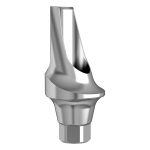The early stages of childhood represent a phase of remarkable vulnerability, demanding meticulous care and attention to pave the way for robust well-being and progression into adulthood. Just as routine medical check-ups influence overall health, the oral well-being of children is significantly shaped by the quality of care, focus, and oral habits demonstrated by parents, guardians, or the familial environment they are enveloped in.
While disparities in inadequate oral health transcend racial or ethnic confines, educational levels, socioeconomic status, dental coverage, and parental attitudes towards preventive care take center stage as key factors influencing the oral health status of numerous Black and brown children.
Kids, especially the younger ones, are at risk if their diet lacks nourishing foods, they consume sugary beverages or milk before bedtime, and they neglect regular brushing. These sugars linger on their teeth, providing sustenance for bacteria and leading to the formation of cavities. Thus, education stands as an imperative pillar.
Preventive measures present another pivotal facet.
Certain children lack access to a healthcare provider or dental insurance, and irregular dental visits can give rise to formidable challenges.
Primary Dentition: A Crucial Phase for Adequate Maintenance
Were you aware that the enamel of primary teeth is comparatively less resilient than that of permanent teeth, rendering them more susceptible to cavities?
Should cavities afflict young children and remain untreated, premature tooth loss ensues. This untimely loss can disrupt the emergence of permanent teeth, leading to potential underdeveloped jaws or dental crowding. Primary teeth play a pivotal role, as their presence for a designated period facilitates the subsequent development of underlying secondary teeth. However, the enamel of primary dentition is less resistant to bacterial and sugar activity, making it more susceptible to cavities compared to its secondary counterpart.
Nutrition’s Impact on Oral Health
Did you know that the nutritional value of children’s diets significantly influences their dental health?
Food products rich in high fructose corn syrup, often found in local convenience stores, lack the essential nutritional components necessary for robust health. These items, abundant in fructose and corn-based sugars, become a prime target for bacterial activity, contributing to cavity formation. Moreover, alongside the heightened risk of cavities, these high fructose corn syrup-laden foods contribute to childhood obesity and diabetes.
The Role of Water Source in Dental Health
Were you informed that ordinary tap water can play a role in fortifying enamel?
A comprehensive understanding empowers us to shield our children from potential oral health issues. Ensuring proper nighttime brushing before sleep is vital – a step that should follow the consumption of candy or regular food. This includes beverages like soda or even milk. The significance of tap water, often overshadowed by bottled alternatives and sodas, lies in its fluoride content, which aids in enamel reinforcement. Consequently, tap water acts as a deterrent against the onset of rampant caries, widespread cavities.
Little ones who indulge in milk via bottles or those who fall asleep with a bottle in hand expose their teeth to lactose, a sugar compound. This lactose transforms into sugar during digestion, lingering on teeth and contributing to cavity formation. It is thus imperative to educate parents about the necessity of brushing their infants’ teeth before sleep.





